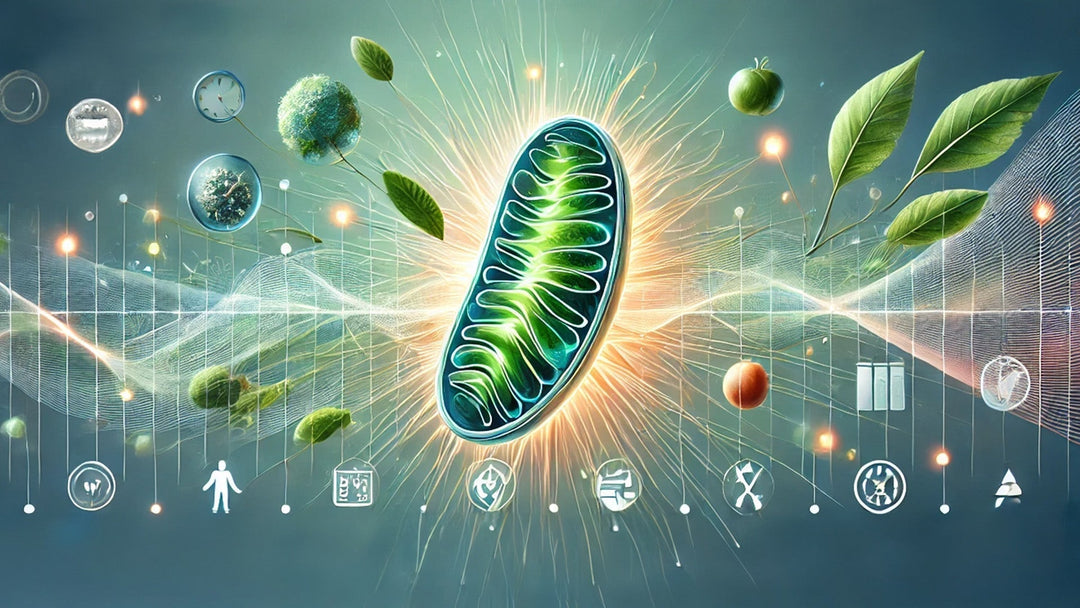Intermittent fasting switches off the permanent alarm in the brain and not only helps with weight loss

In modern society, this often leads to the brain being in a constant state of alarm. A nutrition expert explains how intermittent fasting can ensure that calm returns. Strictly speaking, intermittent fasting is not a new trend. It is older than any superfood and is the most natural and efficient way of getting rid of cellular waste. Intermittent fasting became really well-known in 2016 thanks to the Japanese Yoshinori Ohsumi. He received the Nobel Prize for his discoveries of autophagy.
Intermittent fasting helps with self-cleaning
Autophagy* is a type of recycling system in human cells. During this process, the body breaks down and recycles unneeded and diseased cell components. This can eliminate defective structures and also viruses, bacteria or cancer cells. Intermittent fasting can set this self-cleaning process in motion.
spermidine**
The substance spermidine, which is found in all living organisms, is another natural way to activate the autophagy process besides fasting. Since spermidine can be found in every cell, it is important that the spermidine content of the cell is kept at the right level so that the cell remains young and healthy. Spermidine is the only natural substance that can guarantee this - and without any known side effects.
Food abstinence affects the autonomic nervous system
But abstinence from food can do much more. It helps you lose weight, is one of the most effective anti-aging methods and, most importantly, it has a positive effect on the autonomic nervous system (ANS). You have to know that over 95 percent of all processes in our body are controlled by the autonomic nervous system. This includes breathing, heart function, blood pressure control, immune system activity and digestion, to name just a few.
Balance is crucial
There are two main players in the ANS that have completely different tasks: Firstly, the sympathetic nervous system, which provides drive and physical performance. In a car, this would be comparable to the accelerator pedal. And secondly, the parasympathetic nervous system, which is the counterpart responsible for balance and relaxation. In a car, this would be the brake. The former puts us on alert, the latter is responsible for rest mode. For a healthy, efficient body, it is important that the interaction in this perfect backup system runs harmoniously.
The modern body is constantly on alert
But this still works for very few people today. Daily deadline pressure, sensory overload, negative news, lack of exercise, fast food, perfectionism, lack of sleep mean that the sympathetic nervous system is in a permanent state of alert. Stress hormones such as adrenaline and cortisol are constantly released as a result.
The fatal thing is that in flight mode, the immune system is reduced and sometimes even switched off. In constant fire, the body finds it more important to protect itself from danger than to worry about such unimportant things as cancer cells, viruses, bacteria or regeneration.
Intermittent fasting provides rest and balance
If you regularly fast intermittently and take a break from eating for 16 to 19 hours, you give your body the opportunity to reactivate the parasympathetic nervous system, which is responsible for rest and balance. When you eat is important. The activity of the sympathetic nervous system increases as the sun rises and reaches its peak around midday, when the sun is at its highest.
If you eat your main food in the morning and midday, you are essentially running with the wind at your back and digesting at full speed. During this time, significantly more energy is burned, which is noticeable as heat production through what is known as thermogenesis.
This recommendation can be found in almost all traditions - whether in Ayurveda or among indigenous peoples. Eating when the "sun is at its highest point" is described there as the ultimate health elixir.
Body cleanses itself during the meal break
And that is also clear, because the complete cleansing and regeneration takes place when the metabolism is at its lowest. When the break from eating at night has reached its peak and the parasympathetic nervous system can fully carry out its tasks, the true "rejuvenation, cleansing and regeneration" takes place.
Only then are the growth hormones, known as human growth hormones (HGH), released, breaking down the body's own stored fat and building muscle. This primarily benefits women, whose metabolism is naturally lower than that of men.
If you eat a portion of pasta at an Italian restaurant in the evening, you will go to bed with high insulin levels. This slows down the release of HGH and the activity of the parasympathetic nervous system. Alcohol and cortisol (which is triggered by long-term stress) also block the most important growth hormones.
Correctly used interval fasting not only ensures a good release of the “fountain of youth hormones”, it also ensures more balance in the autonomic nervous system, as the main actors have sufficient time to carry out their tasks again.
If you want to do something for your health, your anti-aging and your autonomic nervous system in the long term, you should give your body this time out. Then the positive result will not only be of short-term visual effect, but will also be of great benefit to your body and mind in the long term.
*Autophagy is involved in the degradation and remodeling of proteins and lipids and in the provision of amino acids in conditions of reduced or (partial) abstinence from food, as is the case during fasting. Fasting induces autophagy. It occurs to a small extent in all cells, but is increased during metabolic, genotoxic, infectious and hypoxic stress.
**Spermidine, also called monoaminopropylputrescine, is a biogenic polyamine and an intermediate in the formation of spermine from putrescine and decarboxylated S-adenosylmethionine.
Spermidine is found in all living organisms and is closely linked to cell growth. The amount of spermidine in the body increases when the metabolism speeds up. When the metabolism slows down, spermidine production decreases. The concentration of spermidine in the body also decreases with age.
Spermidine enhances autophagy, a cellular process that is crucial for the general cellular activity of proteins as well as the function of mitochondria and cardiomyocytes (heart muscle cells). Experiments have shown that dietary intake of spermidine counteracts age-related dementia.






